Developing math skills Normal Numbers Worksheets for Ages 7-9
6 filtered results
-
From - To
Welcome to our "Developing Math Skills: Normal Numbers Worksheets for Ages 7-9" page! Designed to enhance foundational math skills, these engaging worksheets focus on normal numbers, ensuring that children aged 7 to 9 build confidence and proficiency in their mathematical abilities. Each worksheet features fun and interactive exercises that help students learn to identify, read, and write normal numbers, while reinforcing essential concepts such as number sequencing and basic operations. Whether used in the classroom or at home, our worksheets provide a comprehensive resource for educators and parents alike to support their children's math development in a fun and effective way. Unlock your child's math potential today!
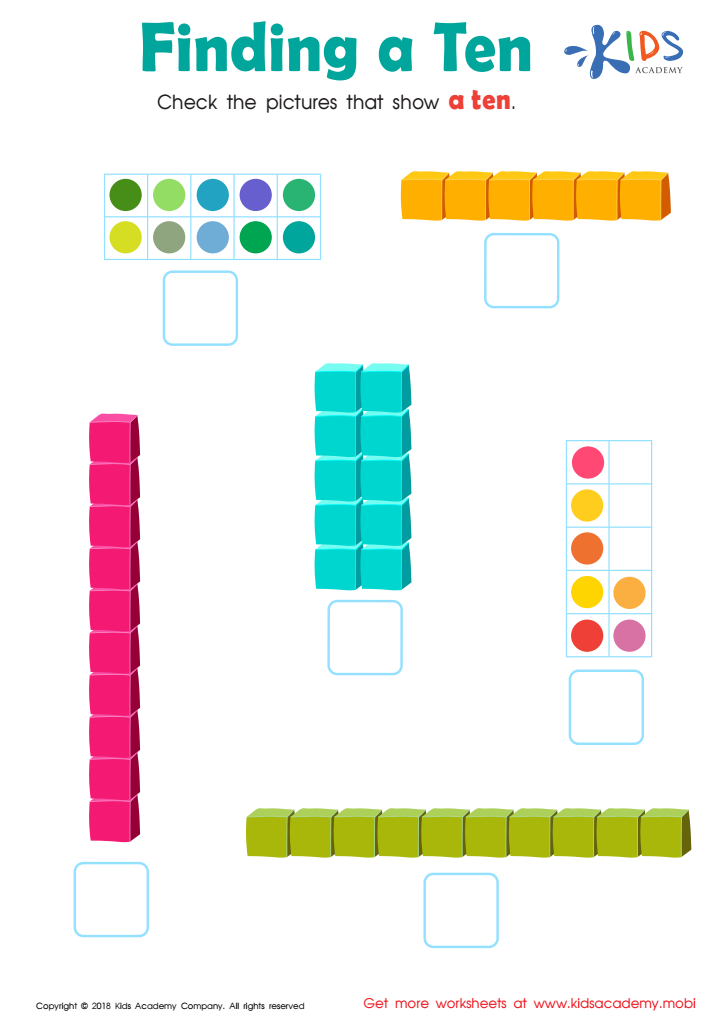

Finding a Ten Worksheet
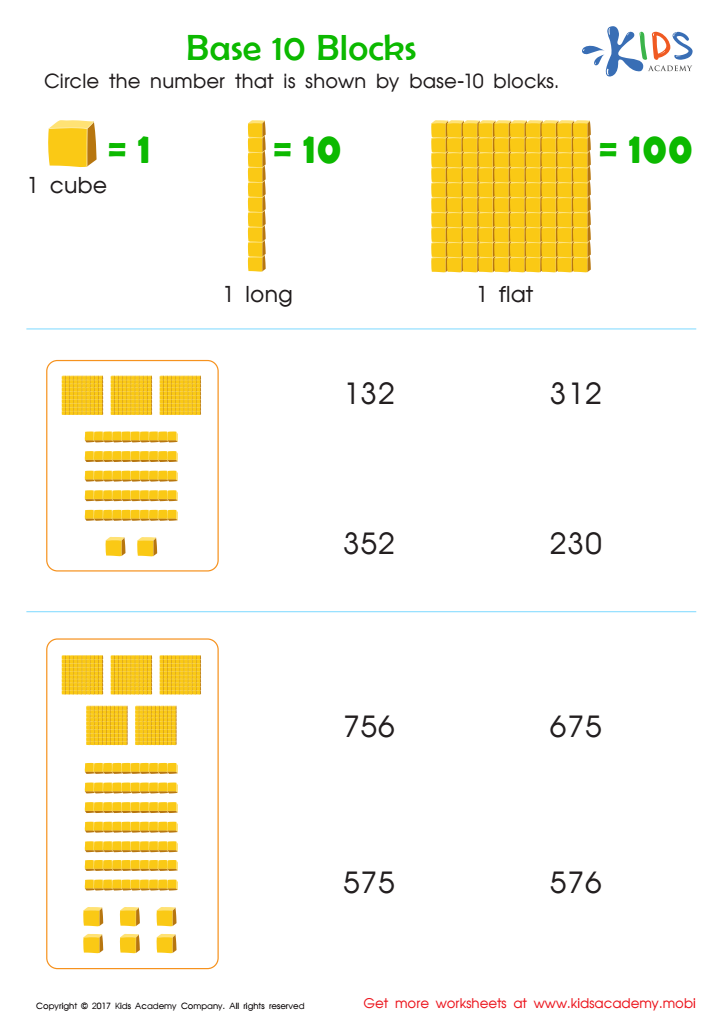

Base Ten Blocks Worksheet
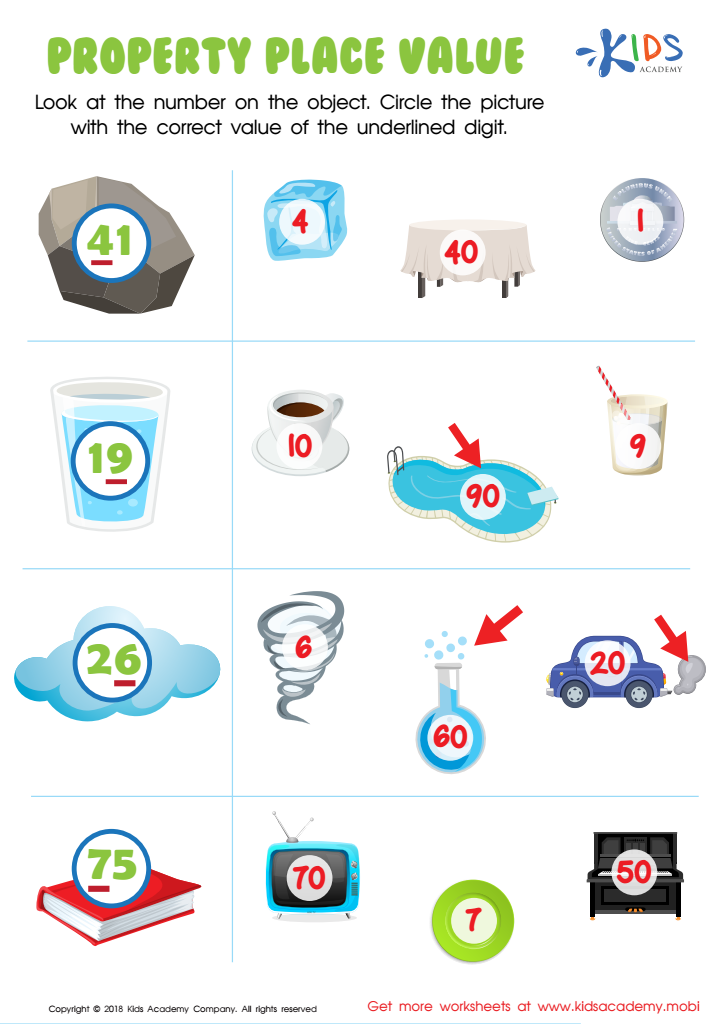

Property Place Value Worksheet
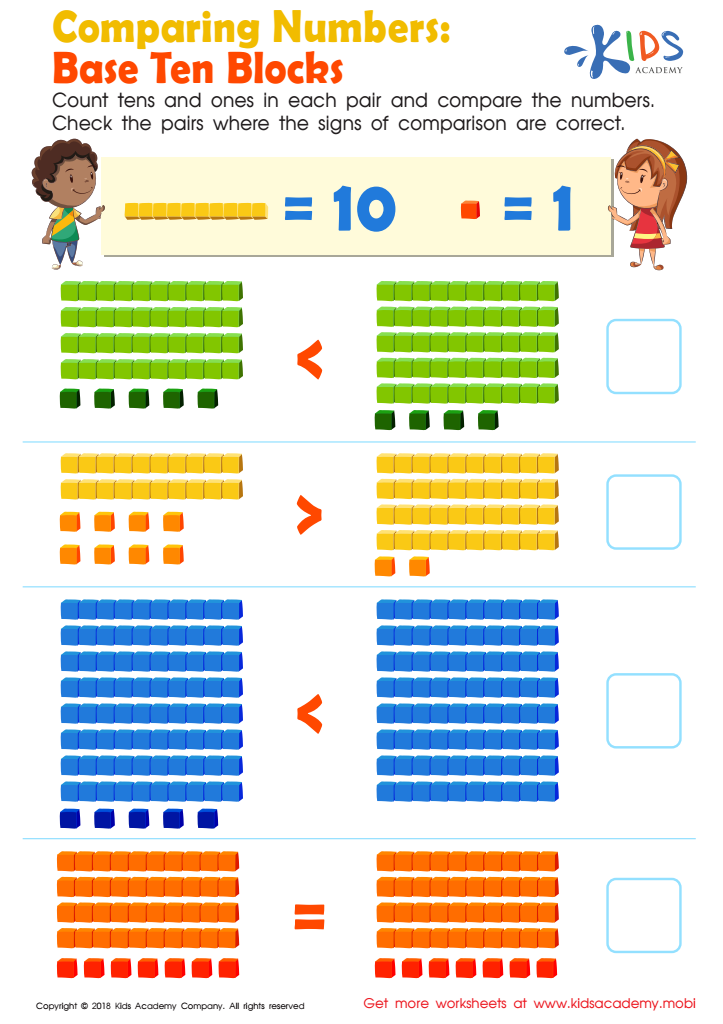

Comparing Numbers: Base Ten Blocks Worksheet
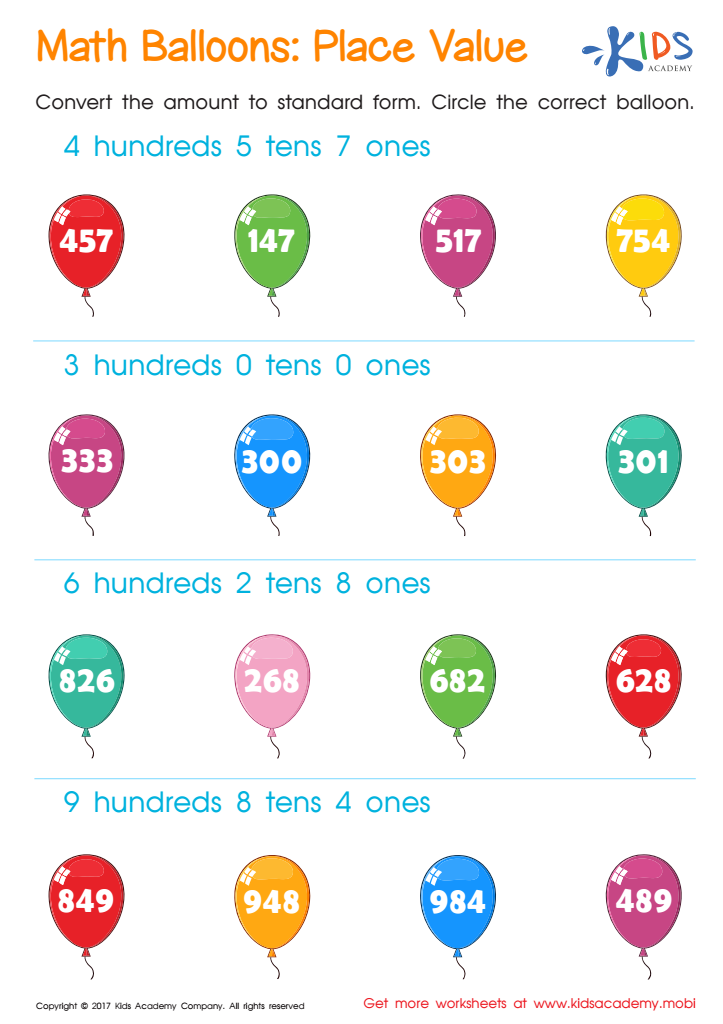

Place Value Printable Worksheet
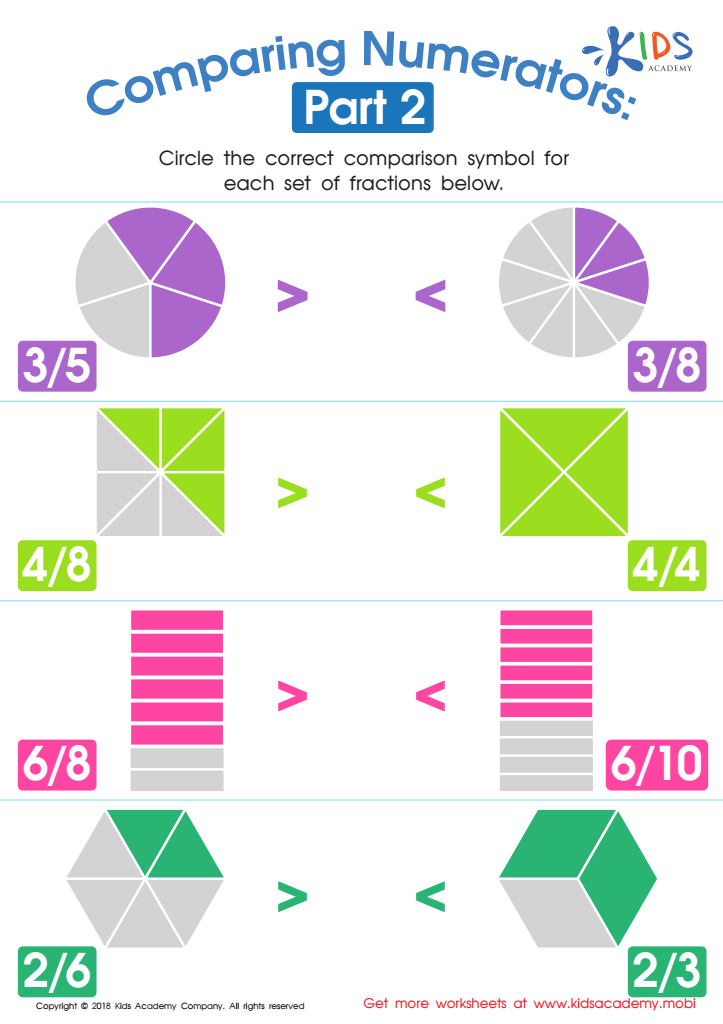

Comparing Numerators Part 2 Worksheet
Developing math skills, particularly in normal numbers, is crucial for children aged 7-9 for several reasons. First, this age group is typically transitioning from basic arithmetic to more complex concepts, such as addition, subtraction, and the beginnings of multiplication and division. A solid foundational understanding of normal numbers—whole numbers typically used in daily life—enables students to build confidence and fluency in their math abilities.
Additionally, strong math skills are linked to improved problem-solving and critical-thinking abilities. When parents and teachers emphasize the importance of normal numbers, they help children view math as a practical tool for everyday situations, from counting change to understanding time and measurements. Moreover, engaging students in math can enhance their engagement with the subject, foster a positive attitude toward learning, and encourage persistence when facing challenges.
Furthermore, in a society increasingly driven by technology, proficiency in math is essential for academic and career success. By nurturing these skills early on, parents and teachers not only prepare children for future educational endeavors but also equip them with the ability to approach and solve real-world problems, leading to confidence and resilience in learning and beyond.
 Assign to My Students
Assign to My Students
















